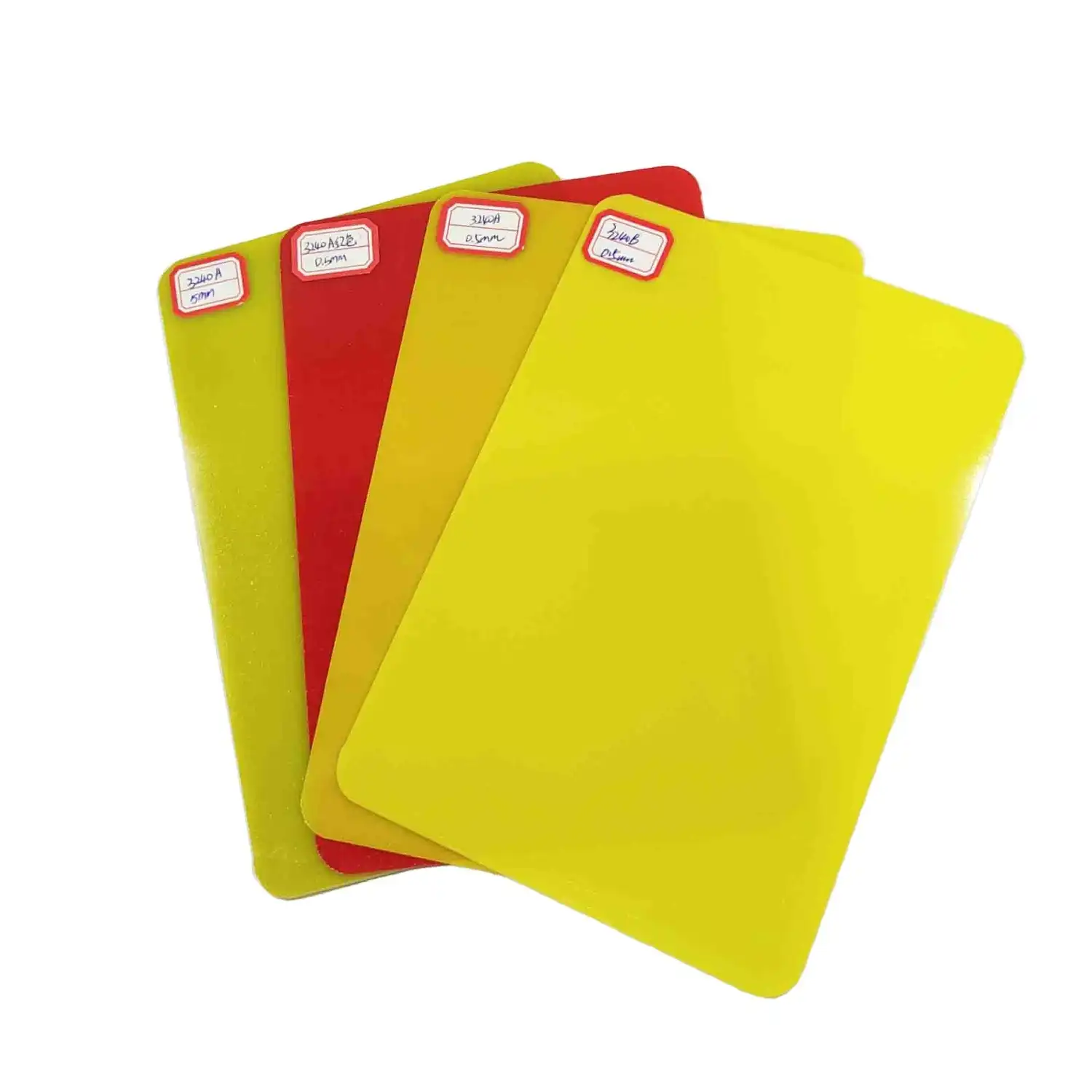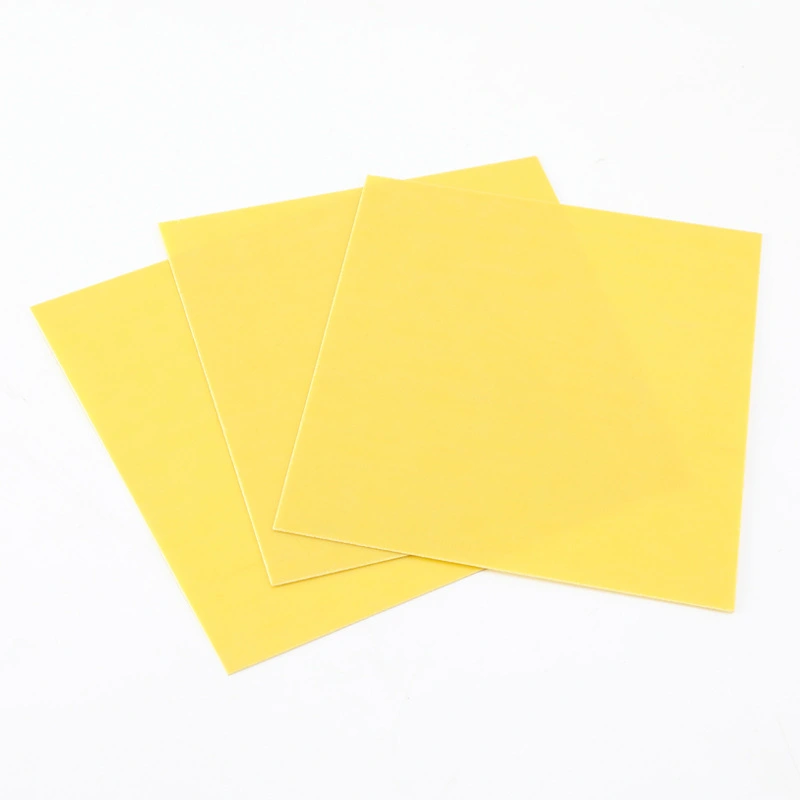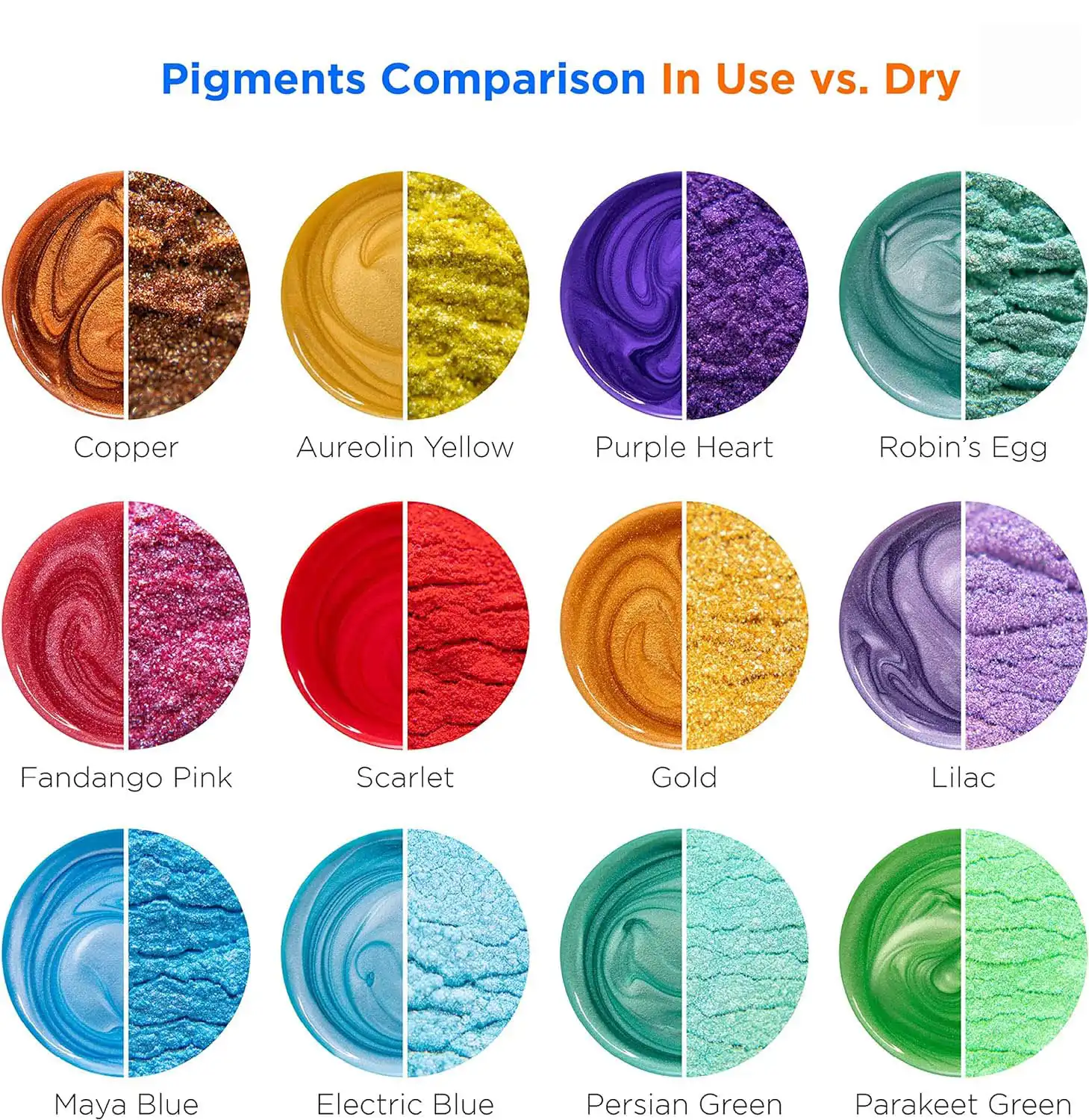What are the applications of 3240 Epoxy Fiberglass Sheets?
2024-11-07 16:58:33
3240 epoxy fiberglass sheets are versatile composite materials widely used across various industries due to their exceptional properties. These sheets find applications in electronics manufacturing, serving as reliable substrates for circuit boards and insulation components. In the automotive sector, particularly in electric vehicles, 3240 epoxy boards are crucial for powertrain systems and battery enclosures. Aerospace and defense industries utilize these sheets for their ability to withstand extreme conditions, incorporating them into critical avionics and communication systems. Additionally, industrial equipment manufacturers depend on 3240 epoxy fiberglass for creating robust components that can endure harsh operating environments. The material's combination of electrical insulation, mechanical strength, and heat resistance makes it indispensable in numerous high-performance applications across these sectors.
|
|
3240 Epoxy Fiberglass SheetBrand: Hongda |
| Contact Us | |
Characteristics and Properties of 3240 Epoxy Fiberglass Sheets
Electrical Insulation Excellence
3240 epoxy fiberglass sheets boast remarkable electrical insulation properties, making them a preferred choice in the electronics industry. These sheets exhibit low dielectric constants and loss tangents, ensuring minimal signal interference and energy dissipation. Their high volume and surface resistivity contribute to their effectiveness in preventing current leakage, crucial for maintaining the integrity of sensitive electronic components. The material's ability to maintain its insulative properties across a wide range of temperatures further enhances its reliability in diverse applications.
Mechanical Robustness
The composite nature of 3240 epoxy fiberglass sheets imbues them with exceptional mechanical strength. These sheets demonstrate high flexural and tensile strength, allowing them to withstand significant physical stress without deformation or failure. Their impressive impact resistance makes them suitable for applications subject to vibrations or sudden shocks. The material's dimensional stability across varying environmental conditions ensures consistent performance, preventing warpage or distortion that could compromise the integrity of the components it supports.
Thermal Performance
One of the standout features of 3240 epoxy fiberglass sheets is their excellent thermal performance. These sheets maintain their structural and electrical properties at elevated temperatures, typically up to 130°C for continuous operation. Their low coefficient of thermal expansion minimizes stress on attached components during temperature fluctuations. Additionally, the material's flame-retardant properties, often meeting UL94 V-0 standards, enhance safety in high-temperature applications. This combination of heat resistance and flame retardancy makes 3240 epoxy boards invaluable in industries where thermal management is critical.
Industry-Specific Applications of 3240 Epoxy Fiberglass Sheets
Electronics Manufacturing
In the realm of electronics manufacturing, 3240 epoxy fiberglass sheets serve as the backbone for numerous applications. They are extensively used as base materials for printed circuit boards (PCBs), providing a stable and insulative foundation for complex electronic circuitry. The sheets' low moisture absorption rate ensures the longevity of these PCBs, even in humid environments. High-frequency applications, such as in telecommunications equipment, benefit from the material's consistent dielectric properties. Additionally, these sheets are utilized in the fabrication of insulators, spacers, and protective barriers within electronic devices, contributing to their overall reliability and performance.
Automotive Sector
The automotive industry, particularly in the burgeoning electric vehicle (EV) segment, has found numerous applications for 3240 epoxy fiberglass sheets. These materials play a crucial role in the construction of battery enclosures, providing both electrical insulation and structural support. The sheets' flame-retardant properties enhance the safety of these high-energy storage systems. In powertrain components, such as inverters and motor controllers, 3240 epoxy boards serve as insulation barriers and mounting substrates. Their ability to withstand vibrations and thermal cycling makes them ideal for use in automotive electronics, ensuring long-term reliability under the harsh conditions experienced in vehicles.
Aerospace and Defense
The aerospace and defense sectors leverage the exceptional properties of 3240 epoxy fiberglass sheets in various critical applications. These materials are integral to the construction of avionics systems, where their electrical insulation and thermal stability are paramount. Radar and communication equipment benefit from the sheets' low signal loss characteristics, enhancing overall system efficiency. In satellite components, where weight is a crucial factor, the high strength-to-weight ratio of 3240 epoxy boards makes them an excellent choice. The material's resistance to extreme temperatures and pressure changes also makes it suitable for use in aircraft structural components and insulation systems, contributing to the overall safety and performance of aerospace vehicles.

Advantages and Considerations in Using 3240 Epoxy Fiberglass Sheets
Cost-Effectiveness and Durability
3240 epoxy fiberglass sheets offer a compelling balance of performance and cost-effectiveness, making them an attractive option for many industries. Their durability translates to extended product lifecycles, reducing the frequency of replacements and associated costs. The material's resistance to environmental factors such as moisture, chemicals, and UV radiation further enhances its longevity, particularly in outdoor or harsh industrial settings. When considering total cost of ownership, the initial investment in 3240 epoxy boards often proves economical due to their reliability and reduced maintenance requirements.
Processing and Fabrication
The versatility of 3240 epoxy fiberglass sheets extends to their processing capabilities. These materials can be easily machined, drilled, and cut to precise specifications using standard tools and equipment. Their compatibility with various surface finishes and coatings allows for customization to meet specific application requirements. The sheets' ability to bond well with adhesives and resins facilitates integration into complex assemblies. However, it's crucial to consider proper handling and safety measures during fabrication, as dust generated from cutting or drilling can be potentially harmful if inhaled.
Environmental and Regulatory Compliance
As industries increasingly focus on sustainability and regulatory compliance, 3240 epoxy fiberglass sheets align well with these concerns. Many formulations of these materials comply with RoHS (Restriction of Hazardous Substances) directives, making them suitable for use in products destined for global markets. Some variants are also halogen-free, addressing environmental concerns associated with certain flame retardants. However, end-of-life considerations for these composite materials remain a challenge, as recycling options are limited. Organizations using 3240 epoxy boards should be aware of proper disposal methods and potential future regulations regarding composite materials.
Conclusion
3240 epoxy fiberglass sheets have emerged as a cornerstone material in various high-performance applications across multiple industries. Their unique combination of electrical insulation, mechanical strength, and thermal resistance makes them indispensable in electronics, automotive, aerospace, and industrial sectors. As technology continues to advance, the versatility and reliability of these materials ensure their continued relevance and application in innovative products and systems. While challenges exist in terms of end-of-life management, the overall benefits and adaptability of 3240 epoxy fiberglass sheets position them as a crucial component in the development of next-generation technologies and products.
Contact Us
For more information about our 3240 Epoxy Fiberglass Sheets and how they can benefit your specific application, please don't hesitate to contact us at info@jhd-material.com. Our team of experts is ready to assist you in finding the perfect solution for your needs.
References
1. Johnson, R. M., & Smith, T. L. (2019). Advanced Composite Materials in Modern Electronics: Applications and Challenges. Journal of Materials Engineering and Performance, 28(4), 2145-2160.
2. Chen, X., & Zhang, Y. (2020). Epoxy-based Composites in Automotive Applications: A Comprehensive Review. Composites Part B: Engineering, 195, 108088.
3. Aerospace Materials Handbook (2021). CRC Press, Boca Raton, FL.
4. Kumar, A., et al. (2018). Electrical and Thermal Properties of Epoxy/Inorganic Nanocomposites. Journal of Applied Polymer Science, 135(24), 46397.
5. Miller, S. G., & Baur, J. W. (2017). Durability of Fiber-Reinforced Polymer-Matrix Composites in Extreme Environments. Polymer Reviews, 57(4), 598-621.
6. Impact Assessment of Composite Materials in Electronics (2022). IEEE Transactions on Components, Packaging and Manufacturing Technology, 12(3), 456-470.








